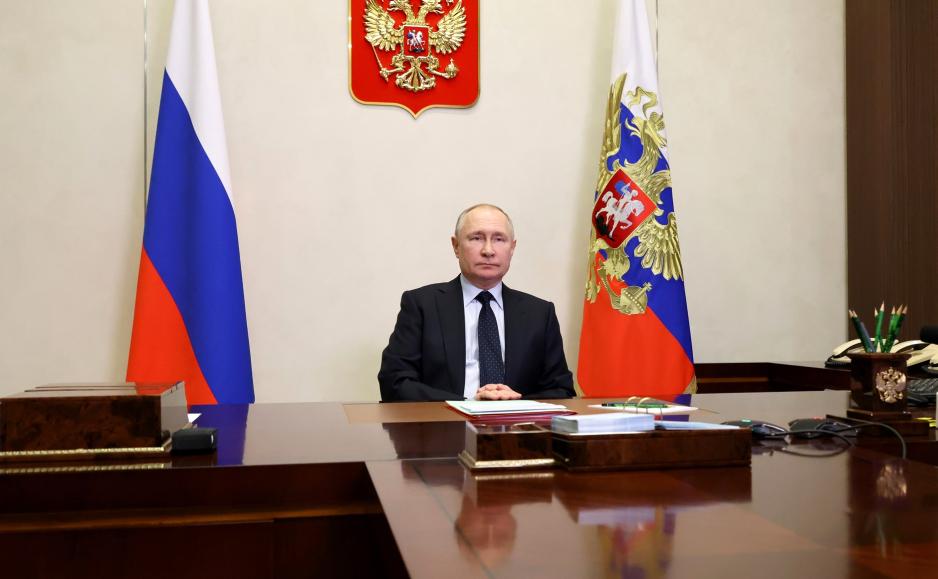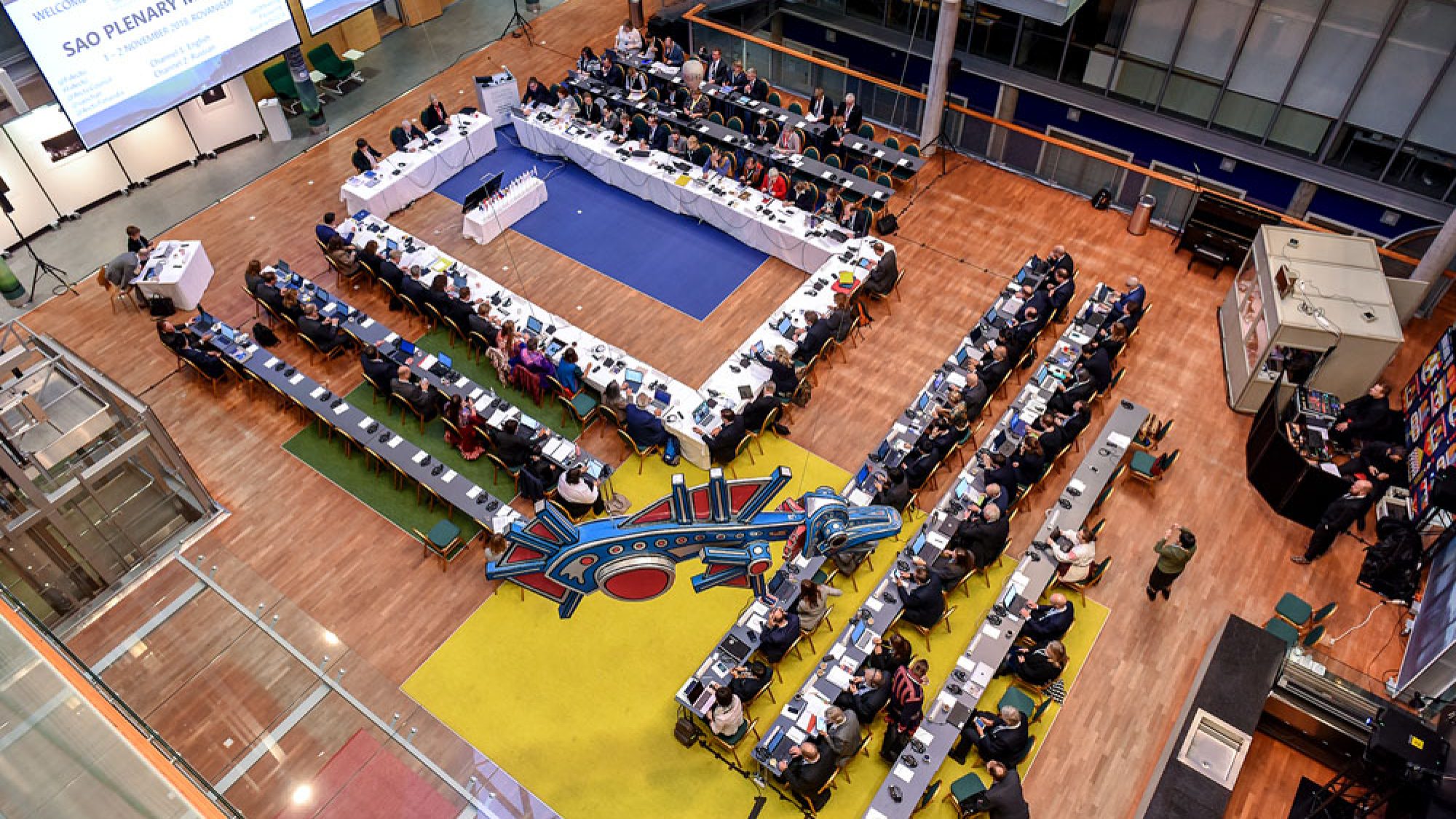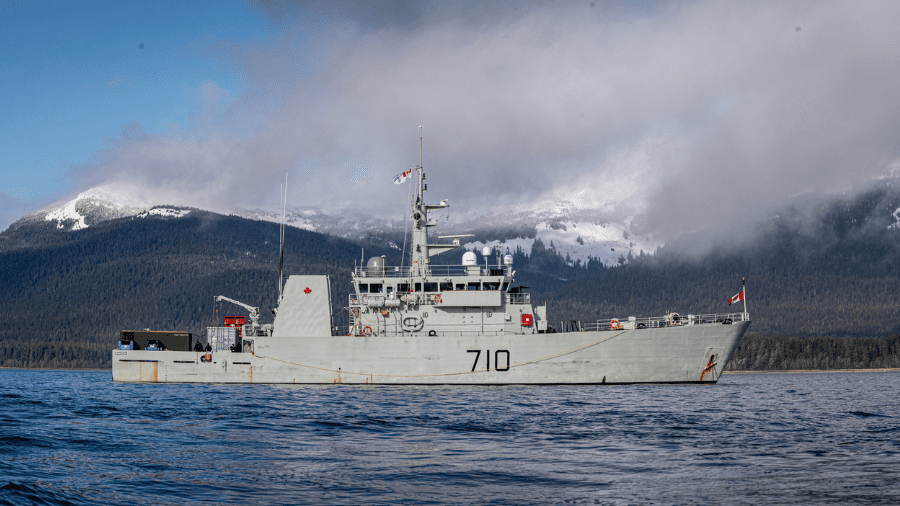Russia, Respecting The Rule of Law/Arctic Council Chairmanship 2021-2023
 |
"A cross-cutting priority of the Russian Chairmanship in the Arctic Council will be "Responsible Governance for Sustainable Arctic" through promoting collective approaches to the sustainable development of the Arctic, environmentally, socially and economically balanced, enhancing synergy and cooperation and coordination with other regional structures, as well as implementation of the Council's Strategic Plan, while respecting the rule of law.""The Russian Chairmanship will continue supporting the establishment of the Arctic Council as the leading format for international Arctic cooperation, improving its work, increasing the effectiveness of its Working and Expert groups, the Secretariat, as well as developing mechanisms for financing the Council's activities, including its projects and programs, implementing decisions and recommendations, as well as encouraging the dialogue and interaction with the Observers to provide their meaningful and balanced engagement in the Council’s activities. It intends to further intensify collaboration of the Arctic Council with the Arctic Economic Council, the Arctic Coast Guard Forum, the University of the Arctic. Among the priorities of the Russian Chairmanship – promoting international scientific cooperation, in particular, exploring the possibility to conduct an Arctic Council scientific expedition to the Arctic Ocean."His Excellency Lavrov Sergey Viktorovich Minister of Foreign Affairs of the Russian Federation
 |
| Sea ice in the Arctic Roscongress |
"The hopes for cooperation with Russia in the Arctic continue to cool. Days after a U.S. diplomat stated that cooperation with Russia in the Arctic was now virtually impossible, the Kremlin published amendments to its Arctic policy. President Putin signed the decree earlier this week on 21 February 2023. ""The updated document places greater emphasis on Russian national interests in the region and removes specific mentions for cooperation within the Arctic Council.""While the original policy, published in March 2020, called for the “strengthening of good neighborly relations with the Arctic states” in the fields of economic, scientific, cultural and cross-border cooperation the amended version removes the above section and instead calls for the “development of relations with foreign states on a bilateral basis, […] taking into account the national interests of the Russian Federation in the Arctic”."High North News
 |
| President Putin discusses expansion of Russia’s territorial claims with the permanent members of the Security Council. (Source: Kremlin) |
The
eight Arctic states that comprise the Arctic Council are Finland,
Norway, Iceland, Sweden, Russia, Denmark, Canada and the United States.
All these states in collaboration and agreement have produced binding
agreements focused on preservation and environmental protection. The
council represents a rare platform that gives a voice to the region's
Indigenous peoples. Security interests are not part of the Council's
agenda,
The
Arctic Council for close on three decades has been an example of
successful post-Cold War cooperation. Its members have seen common
purpose in cooperating on climate-change research and social development
in recognition that this is an ecologically sensitive region of the
world and currently undergoing vast environmental transformation linked
to Climate Change.
All
that has changed. Following the Russian invasion of Ukraine other
council members were estranged from Russia as a rebuke of its imposition
of war on its neighbour, and stopped working with their Russian
counterpart. Norway now prepares to assume the Council chairmanship from
Moscow, on May 11. Leaving experts to ask whether the viability of the
polar body itself is at risk reflecting its inability to cooperate with
the very country that controls over half of the Arctic coastline.
There
could be dire future implications for the region's environment and its
four million inhabitants who face the effects of melting sea ice and the
interest of non-Arctic countries in the region's untapped mineral
resources in the face of an ineffective Arctic Council. With the end of
cooperation with Moscow a third of the council's 130 projects cannot
move forward, new projects cannot proceed, existing projects cannot be
renewed.
 |
| Arctic Council Meeting |
No
longer do Western and Russian scientists share climate-change findings.
Cooperation for possible search-and-rescue missions or oil spills has
come to an end. "I am worried that this will really hobble the ability of the Arctic Council to work through these various issues",
stated US. Senator Angus King. Polar waters are opening to shipping as
sea ice vanishes. The Arctic is known to be warming four times faster
than the rest of the world.
Industries
are eager to exploit the region's endowment of natural resources that
include oil, gas and metals like gold, iron and rare earths. An
effective response to changes and the vital issues that loom are less
likely given discord between Russia and the other members of the Arctic
Council. "Norway
has a big challenge. That's how to rescue as much as possible of the
Arctic Council's good work in the absence of Russia", pointed out John Holdren, co-director of the Harvard Kennedy School's Arctic initiative.
For
its part, Russia points out that the work cannot continue without its
cooperation. Nikolay Korchunov, Russian Arctic Ambassador, said he was
not confident it "will be able to remain the main platform on Arctic issues, given that the council has become weak".
There is the possibility that Russia may decide that issues affecting
the region must be addressed with Russian interests only in mind. Or
that it may establish a separate Russia-centric rival council.
 |
| China warmly welcomes Putin’s state visit in 2018. After the conversation between Xi Jinping and Putin, China and Russia reached a consensus on deepening bilateral cooperation and signed a series of cooperation agreements. Photo: Presidential Press and Information Office |
Russia
has recently taken steps to expand cooperation in the Arctic with
non-Arctic states; signing a memorandum for example with China,
establishing cooperation between the two countries' coast guards in the
Arctic. China's interests in the Arctic revolve around shipping and
investing in ore extraction, particularly rare earth minerals. Russian
Arctic Ambassador Korchunov pointed out Moscow's welcome of non-Arctic
states in the region. With the proviso they not arrive with a military
agenda.
And
this is yet another area where Russia has distinguished itself, long
before its invasion of Ukraine occurred. It has rebuilt or refurbished
old Soviet military bases on its Arctic shorelines and islands that form
part of Russian territory. It is Russia under Vladimir Putin that has
militarized the Arctic, a condition it wants no other country to
emulate.

Labels: Arctic Council, Canada, Cooperation, Denmark, Environment, Finland, Iceland, Norway, Russia, Sea Ice, Sweden, United States

<< Home